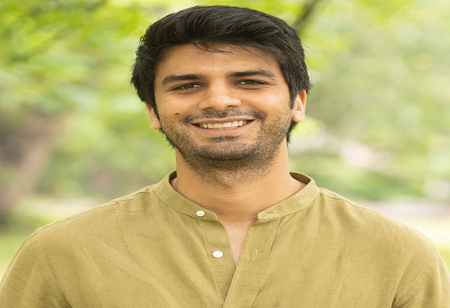Shivam Singhee, Co-Founder & CEO, Awshad

Shivam engaged in an interaction with the India Pharma Outlook magazine in order to inform about the growing usage of medical cannabis in the nutraceutical industry. He is Awshad’s resident CBD expert and the force behind its inception. It was during his time at the University of Texas at Austin, USA that he first experienced CBD’s therapeutic properties to help manage his chronic insomnia. After college, Shivam went on to work in India’s oil and gas industry in various capacities, before deciding to explore the United States’ vibrant CBD landscape further. With a keen understanding of a booming cannabis industry, he came back to India with a vision for a holistic, homegrown cannabis lifestyle brand.
Cannabis, colloquially known as "bhang," has entrenched itself in Indian culture since ancient times. References to cannabis medicines can be traced back to some of the oldest Ayurvedic texts, often referred to as "Vijaya," a plant held in high esteem within Ayurvedic history. Furthermore, one can observe cannabis being offered to Lord Shiva in numerous temples across India, while its recreational use (sometimes known as ganja or charas) is prevalent among yogis, travelers, and the youth, particularly in mountainous regions, cities, and beaches.
Medicinal Benefits
Medical cannabis is gaining recognition for its multifaceted medicinal advantages. Individuals grappling with anxiety, stress disorders, insomnia, depression, and chronic pain management have found solace in cannabis medicines. Particularly noteworthy is the relief it provides to patients with severe neurological conditions like epilepsy and Parkinson's disease, substantially enhancing their quality of life. Cancer patients, too, often opt for medical cannabis due to its ability to alleviate the discomfort and pain associated with chemotherapy, devoid of the side effects commonly linked with traditional pharmaceuticals. There have also been many studies conducted where cannabis usage has helped cancer patients get into remission or tumor shrinkage.
Legislative Evolution
India has witnessed a significant shift in its stance towards cannabis, especially in the medical domain. With over thirty countries amending their cannabis laws in the past decade, India followed suit by permitting CBD medicines in 2014 through the Ayurveda route, facilitated by the establishment of the AYUSH ministry. This progressive step marked a departure from viewing cannabis solely as a gateway drug and acknowledging its therapeutic potential and aligning with global trends.
Consumer Awareness
Despite the growing acceptance of medical cannabis, a substantial obstacle persists in the form of limited consumer awareness and the enduring stigma surrounding cannabis usage. The prevailing misconception portrays cannabis as a recreational drug for festivals like Holi, overshadowing its myriad health benefits. Bridging this awareness gap is crucial to help individuals understand the therapeutic value of cannabis and dispel misconceptions. The legality of medical cannabis is still dubious and ambiguous for most of the population who have been misinformed by the media constantly. I do believe a push from the central government or even an indication of support from the ruling party could overnight change the landscape of the cannabis industry in India.
Global Research and Development
The global landscape has witnessed a surge in research and development pertaining to medical cannabis over the last two decades, particularly in countries like the United States. Cannabis is now available in various formats such as smoking, gummies, oils, balms, and chocolates, catering to a wide array of ailments and preferences. Furthermore, groundbreaking studies showcasing cannabis's efficacy in combating cancer cells have underscored its potential as a potent therapeutic agent. India is lagging far behind currently, but sitting on a potential gold mine with various indigenous cannabis strains that are sought after globally.
Nutraceutical Potential and Future Outlook
Cannabis emerges as a versatile plant with immense nutraceutical potential. Hemp seeds, already approved as a superfood by FSSAI in India, boast high protein, antioxidants, omega fatty acids, and fiber, contributing to overall well-being. Leveraging cannabis leaves and flowers opens avenues for crafting all-natural remedies for numerous health issues, promising innovative solutions within the nutraceutical industry.
Looking ahead, the future of medical cannabis in the nutraceutical landscape appears promising. With an educated population increasingly seeking natural alternatives devoid of strong pharmaceutical side effects, the demand for cannabis-derived products is set to soar. This paradigm shift towards holistic wellness aligns with global trends, positioning India's nutraceutical, Ayurvedic, and homeopathic sectors for substantial growth and innovation in the coming years.